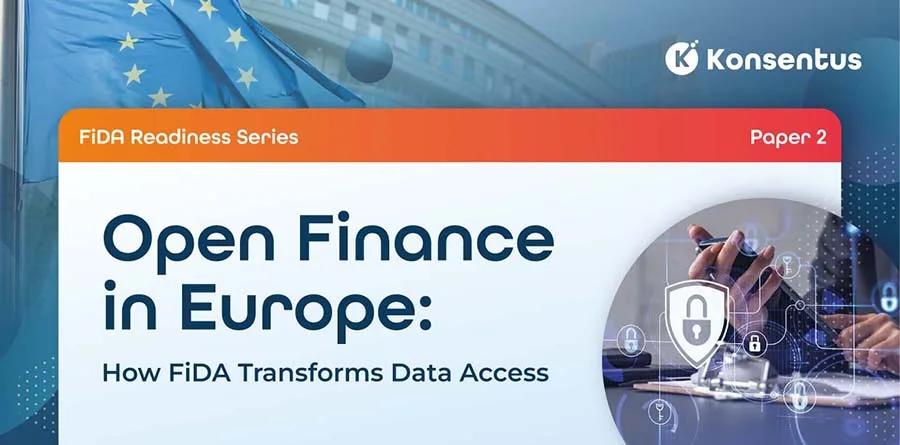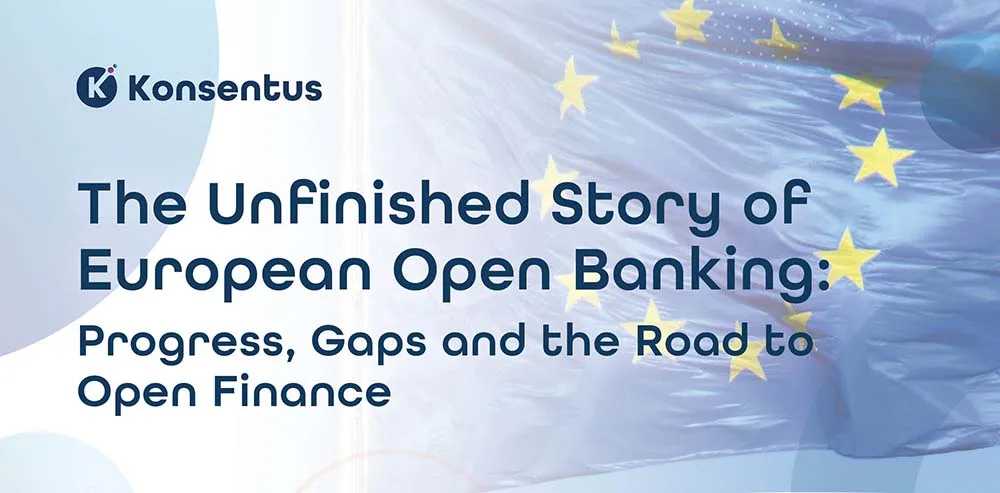The Future of Open Banking: Unlocking the UK’s Payment Potential
By Brendan Jones, CCO, Konsentus
The UK has long been a global leader in payments innovation, and the National Payments Vision, published by the UK Government on Thursday, reinforces its ambition to remain at the forefront of financial services. Based on insights from the independent Future of Payments Review 2023, led by Joe Garner, the vision charts a bold path forward for enhancing the UK’s payments infrastructure, fostering competition, and driving economic growth.
Central to the Vision is the development of open banking as a transformative force in payments innovation presenting an opportunity for the UK to develop an ecosystem rooted in next-generation technology, offering consumers and businesses choice, security and efficiency.
The National Payments Vision: A Framework for Growth
The National Payments Vision addresses pressing challenges in today’s payments ecosystem while laying the groundwork for future advancements. It sets clear objectives for the government, regulators, and the private sector to collaborate in creating a trusted and dynamic environment for payments innovation.
One of the most transformative aspects of this vision is its focus on open banking and unlocking the potential of account-to-account (A2A) payments. It discusses how open banking can provide consumers and businesses with a seamless alternative to traditional card-based payments – but acknowledges that to achieve this ambition requires foundational improvements in infrastructure, functionality, and user experience.
Advancing Open Banking in the UK and Scaling Open Banking Payments
Open banking has already shown its potential, enabling authorised third-party providers to offer innovative services by accessing customer data through standard APIs. However, to fully realize its promise, open banking must evolve beyond its current scope under the CMA9 order, transitioning into a sustainable, long-term framework.
A critical objective of the National Payments Vision is to make A2A payments a ubiquitous payment method. The benefits are clear: enabling consumers to pay directly from their bank accounts for goods and services online or in-person, providing greater choice, reducing reliance on cards, and spurring downward competitive pressure on payment costs.
The Vision outlines several key initiatives:
- Variable Recurring Payments (VRP): As a cornerstone of A2A innovation, VRPs provide a flexible alternative to direct debits, allowing consumers to manage payment timing and amounts. Initial pilots are already demonstrating promise, and the government supports scaling these capabilities to broader use cases.
- E-commerce as a priority: Given the lower technological barriers for online transactions, open banking-enabled e-commerce is identified as a strategic short-to-medium-term priority.
- In-Person Payments: While the potential exists, technological hurdles for point-of-sale open banking transactions remain significant. Efforts must focus on overcoming these challenges to better enable open banking for in-person transactions.
Enhancing Data-Driven Services
Beyond payments, open banking also presents significant opportunities for customers to leverage their financial data for tailored services. This approach aligns with the government’s ambition to position the UK as a global leader in open finance, enabling transformative benefits for businesses and consumers alike.
Clarifying Regulatory Roles
To support the growth of open banking, the roles and responsibilities of regulators must be clearly defined. The National Payments Vision proposes the FCA as the primary regulator for open banking under the forthcoming framework. This will ensure a coherent approach to regulating both payment initiation and data-sharing services while facilitating the transition to open finance.
Regulatory clarity will also help conclude the Joint Regulatory Oversight Committee (JROC) roadmap, which has been instrumental in advancing open banking initiatives. The Vision emphasises the importance of a swift and effective handover between regulatory bodies, ensuring momentum in the development of a future open banking framework.
Building a Sustainable Commercial Model
The vision acknowledges that establishing a viable commercial model will be essential for the long-term success of open banking. There are currently insufficient incentives for data holders to innovate and invest beyond regulatory requirements. To address this, the Vision advocates:
- A premium services model to incentivise investment in advanced open banking capabilities.
- An industry-led approach to developing commercial arrangements for VRP and e-commerce use cases.
- Consideration of reciprocal obligations or reasonable compensation for significant API usage, ensuring fairness and sustainability.
Crucially, the Vision underscores the importance of protecting smaller fintechs reliant on free access to APIs. The government is committed to maintaining this foundational aspect of open banking whilst enabling the ecosystem to grow and innovate.
Ensuring Consumer Protections
While open banking offers significant benefits, it must also provide robust protections to ensure consumer confidence. Currently, card payments offer greater protection than A2A transactions creating a gap that must be addressed.
The government supports efforts by Open Banking Limited and regulators to establish a dispute resolution mechanism. Under the future framework, liability and consumer protection standards will be clarified to ensure a secure and trustworthy payments environment.
Conclusion: A Vision for Global Leadership
The National Payments Vision represents a pivotal moment for the UK’s payments ecosystem. By addressing changes required in regulatory oversight, driving competition and innovation, and enhancing security, the Vision aims to deliver a world-leading payments ecosystem that meets the evolving needs of consumers and businesses.
Open banking lies at the heart of this transformation. Its potential to enable seamless A2A payments, drive data-driven services, and catalyse innovation is immense. However, realising this potential requires a concerted effort from government, regulators, and industry stakeholders to address current challenges, scale solutions, and build a sustainable framework.
At Konsentus, we are proud to support this journey. Together, we can unlock the full potential of open banking, cementing the UK’s position as a global leader.





